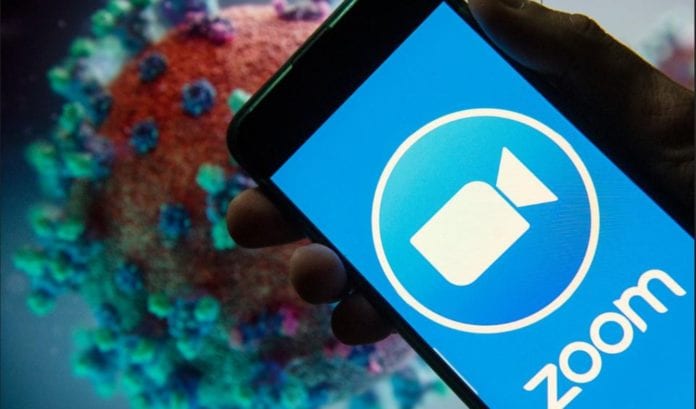The Ministry of Home Affairs has issued advisory that Zoom, which is an American video communication platform, is an unsafe platform for individual communication. The app’s claims that its calls are end to end encrypted are false. The American platform came into controversy after some experts said that the app breaches data privacy and shares the data of the user with third parties. The MHA in its guidelines stated that the video conferencing app should not be used by government officials for official purposes.
MHA in its guidelines stated has prohibited the use of MHA Zoom for online classes.
The private individuals who wish to use the services of the app can continue doing so but certain guidelines must be maintained.
Zoom for online classes saw its soaring popularity after the outbreak of the coronavirus pandemic. Zoom is being used across many countries to host meetings by individuals and enterprises and classes in schools and colleges. Zoom claims to have seen a maximum of 200 million meetings in March. However, the app has been plagued by privacy and security issues ever since its popularity began. There were reports of leaked emails of the users by the app.
Zoom has taken steps to curb this problem by bringing some changes like waiting room has been made a default option.
Despite the advice of MHA about Zoom being an unsafe platform, many colleges of Delhi University and the IGNOU have continued using Zoom for taking online classes. It is not sure whether the guidelines are being followed religiously or not. The guidelines issued by the MHA ask the users to set a new user ID and password for each meeting. The waiting room feature should be enabled by users so that only those can enter the meeting whom the host allows. This feature is enabled on calls by default
The guidelines also ask the users to disable the option to allow removed participants to re-join and file transfer options should be restricted. The hosts should lock meetings once all the attendees have joined.
The students are not left with any other option than attending their online classes on the app. In view of the Ministry’s guidelines, it can be noted that the continued usage of the app is a threat to the data of many students and professors. These renowned universities should move to better-encrypted apps like Google Meet, Microsoft Teams, FaceTime, etc. to conduct online classes.
Many teachers faced the issue of harassment during online classes on Zoom. A teacher said that some outsiders logged into her class using the links sent to her students in the WhatsApp groups and started writing obscene comments.
The invites for these live sessions on Zoom and Google Meet are shared by teachers every day. They are misused by certain students which prevent the class from taking place as a nuisance is create by such miscreants.
These risks should be avoided by choosing software tools that are more personal rather than using the popular ones. This helps in preventing oneself from getting into such situations along with the protection of data.













